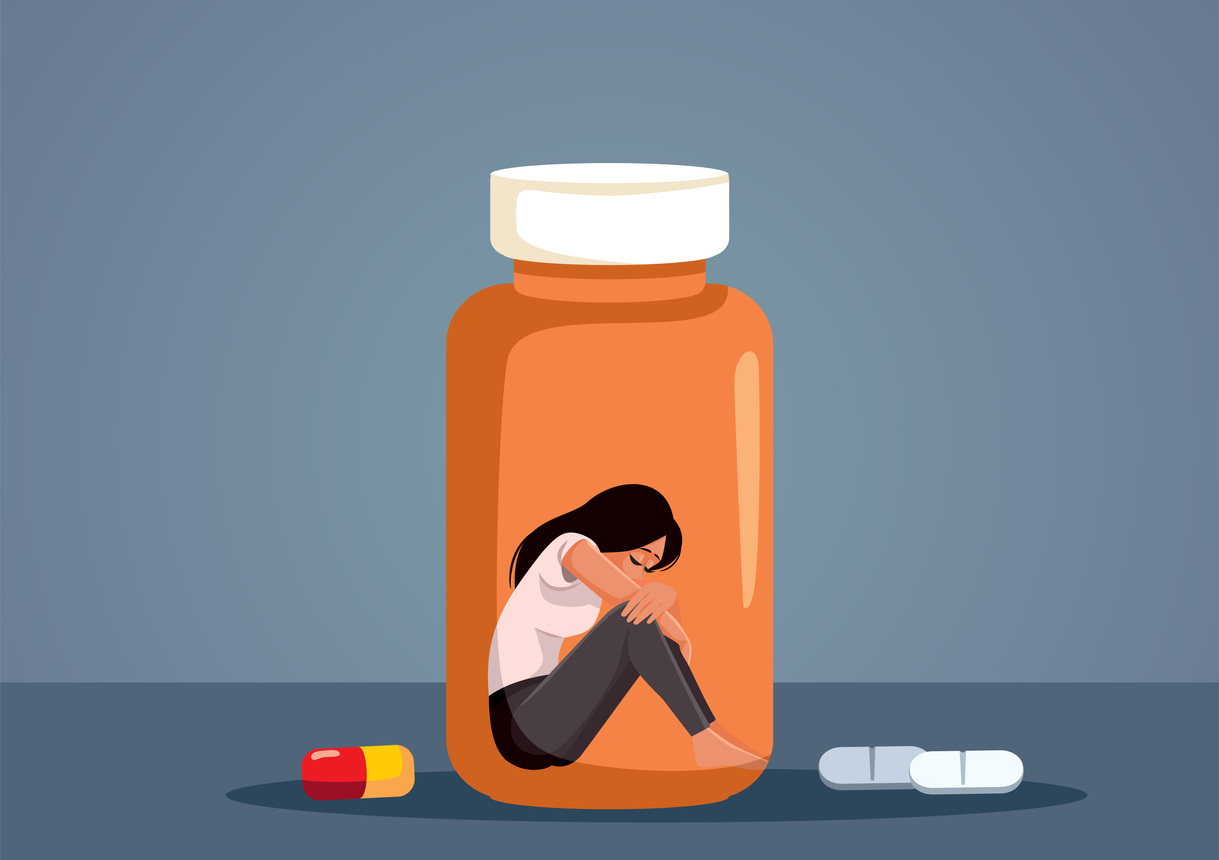
Teens and Dental Opioids
Every day, over 40 Americans die from prescription opioid overdoses, according to the Centers for Disease Control and Prevention (CDC). The growing opioid crisis has raised awareness that addiction can start with a prescription drug.
For many teens, the first time they receive a prescription for opioids is at the dentist.
Here’s a closer look at the role of dentists in the opioid crisis and what you can do to protect your child.
Why are teens at risk for addiction?
Compared to adults, teenagers are at a higher risk for opioid abuse.
This is partly physical. The teen brain has a fully developed nucleus accumbens, the part of the brain that seeks pleasure and rewards. On the other hand, the prefrontal cortex, responsible for judgment and impulse control, doesn’t fully develop until the early to mid-20′s.
Legitimate opioid use (such as taking prescribed drugs after wisdom tooth removal) makes teens 33% more likely to abuse opioids later on, according to a 2015 study in the journal Pediatrics.
And dental prescriptions of opioids for teens have been increasing.
According to a study in the Journal of American Dental Association, dentists prescribed more opioids in 2015 than they did in 2010, and that increase was the sharpest for 11–18-year-old patients. Compared to other age groups, teens also received the strongest dosage of opioids.
When do dentists prescribe opioids?
Over two-thirds of opioids by dentists are related to dental surgery, according to the 2018 study. Opioids are commonly prescribed following:
- Wisdom tooth removal
- Root canal treatment
- Apicoectomy (root end surgery)
- Bone Grafts
- Gum Surgery
Among teens, wisdom tooth removal is the most common dental procedure that can come with an opioid prescription.
Do teens need opioids for dental pain?
Opioids are a common go-to treatment, especially after wisdom tooth removal, by they aren’t the only option.
At Favero Dental, we take the use of, and potential misuse of opioids very seriously.
We recommend that the first line of treatment for dental pain should be over-the-counter painkillers, usually in a combination of ibuprofen (such as Advil) and acetaminophen (also known as Tylenol).
Not only are these painkillers not habit-forming, they’re also effective in treating post-surgery pain. In fact, a 2013 study in the Journal of the American Dental Association found that the use of ibuprofen and acetaminophen is more effective than any other combination of drugs, including opioids.
Compared to their peers around the world, teens in the United States are much more likely to be prescribed opioids after wisdom tooth extraction. Many American teens leave their dentist’s office with a prescription for hydrocodone, also known as Vicodin or Norco. Almost all of this drug’s supply worldwide -99%- is prescribed and used in the U.S.
In other countries, including England, Japan and China, opioids are rarely prescribed after wisdom tooth surgery.
What can parents do?
- Review your child’s prescriptions. Understand the difference between opioid and non-opioid medications.
- Discuss with your child’s dentist whether opioids are the appropriate treatment for your child’s dental pain.
- Keep track of your child’s medication. If your child is prescribed opioids, dispense the tablets as prescribed and drop off any remaining medication at your local pharmacy for proper disposal. Most teens have tablets left over after recovering from wisdom tooth removal. When these pills aren’t disposed of correctly, they can be misused by your teen, family members or friends.
- Start an open conversation. Talk to your children about the risks of opioid addiction and let them know they can turn to you without fear of judgement if they have experienced or witnessed drug misuse.
What can dentists do?
As your dentist we can play an important role in preventing opioid abuse with your teen.
- We will be conservative in prescribing opioids. If a prescription of opioids is necessary, we will prescribe the lowest effective dose, with no more tablets than necessary, and only for acute pain.
- We will review your prescription history to ensure there isn’t a habit of opioid use.
- We will intervene if a patient may be misusing opioids and communicate the risks of addiction before writing a prescription.
Leave a reply →
